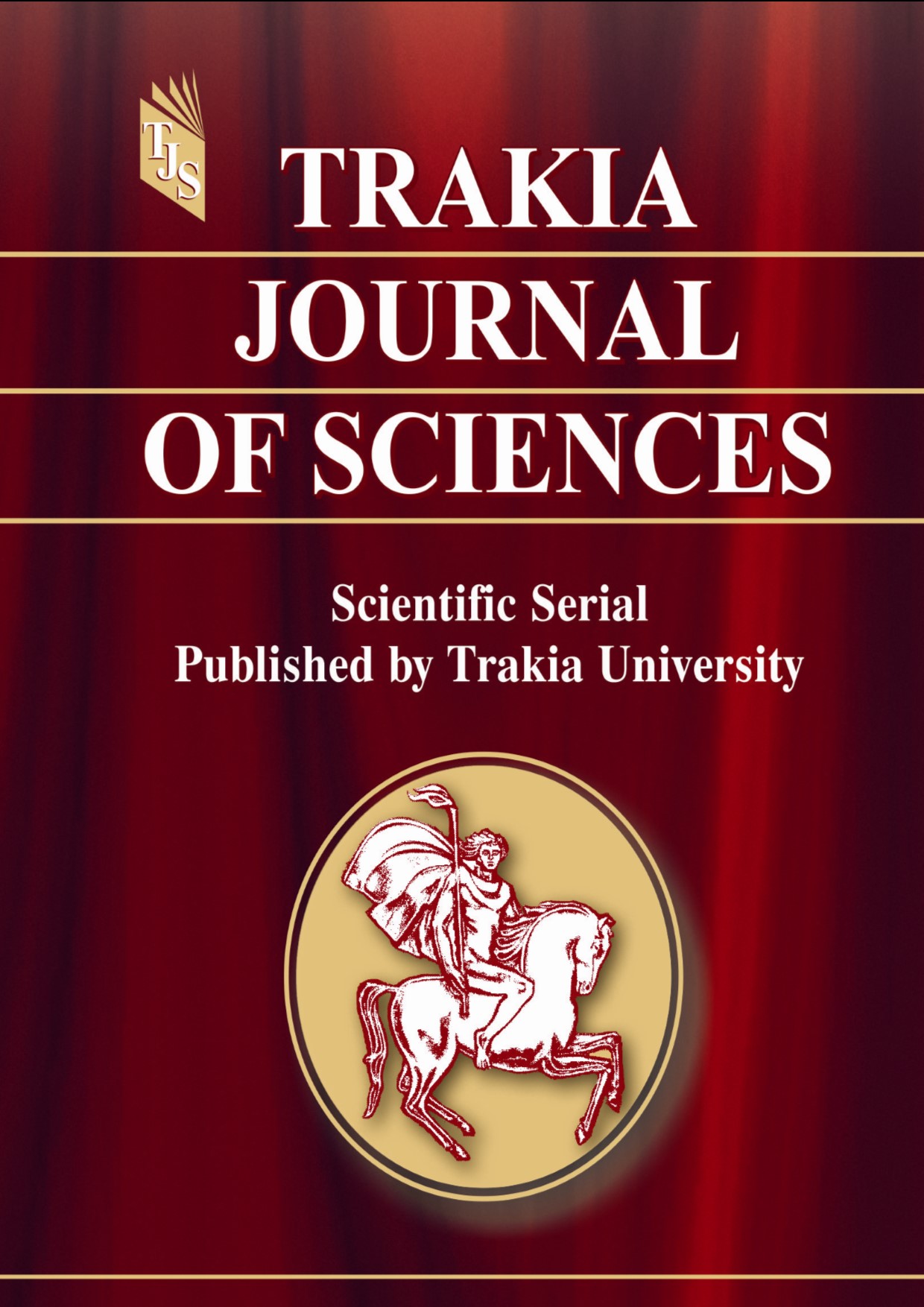ЕDUCATIONAL ENVIRONMENT AND THE TREATMENT OF THE CHILD AS A CONSTRUCTOR OF OWN DEVELOPMENT
DOI:
https://doi.org/10.15547/tjs.2024.s.01.014Keywords:
Early learning, Constructivism, Partnership, Functional knowledge, Interaction, Child's partner role, Active learning, Educational processAbstract
Treating the child as a constructor of his own development means that it actively, independently and organized creates an own system of functional knowledge. This implies an educational environment that supports children's individual interactions and that encourages freedom of children's cognitive interpretations and expressions. To achieve that, the opinion of teachers about the impact of the structured educational environment on the child's partner role in his own development is very important.
The aim of this paper is the relationship between the educational environment and the child as a constructor in own development, depending on the teacher's understanding of the learning and developing process and of the child's role in it. For this purpose, a structured open interview with 37 preschool teachers in 7 focus groups and an observation of child’s participation in 6 preschool institutions, were used as research procedures. The results are processed qualitatively and for research data analyses the analytical and descriptive methods are used. The research provided a general knowledge that educators do not feel the need to create a specific and structured educational environment in order to provide a partner role for the child in the educational process.
References
Göncü, A. and Main,C. (2023), Early Childhood Teacher Narratives on Constructivism, MIND, CULTURE, AND ACTIVITY 2023, VOL. 30, NO. 1, 42–56 https://doi.org/10.1080/10749039.2023.2228295©, 2023 The Author(s). Published with license by Taylor & Francis Group,LLC . https://www.tandfonline.com/doi/epdf/10.1080/10749039.2023.2228295?needAccess=true
Akyol, T. and Erdem H. (2021),Children’s participation from the perspective of teachers, Journal of Pedagogical Research Volume 5 , Issue 1, 2021 http://dx.doi.org/10.33902/JPR.2021167549 Research, p.2, Article https://files.eric.ed.gov/fulltext/EJ1288756.pdf
Котева, Т (1996), Детето- рамноправен партнер и субјект во воспитанието и образованието, Скопје: Гоцмар.
Tam M.(2000), Constructivism, Instructional Design, and Technology: Implications for Transforming Distance Learning, April 2000, Educational Technology & Society, 3(2), License: CC BY-NC-ND 4.0 https://www.researchgate.net/publication/26391080_Constructivism_Instructional_Design_and_Technology_Implications_for_Transforming_Distance_Learning
Duffy, T. M., Jonassen D. H. (edited), (1992), Constructivism and the technology of instruction: a conversation by p. em. Includes bibliographical references and index. ISBN 0-8058-1272-5, Lawrence Erlbaum Associates, Inc., Publishers 365 Broadway Hillsdale, New Jersey 07642 , p. 244
Jukić R. (2013), Konstruktivizam kao poveznica poučavanja sadržaja prirodoznanstvenih i društvenih predmeta UDK 371.214.5, PEDAGOGIJSKA istraživanja, 10 (2), 241 – 263 (2013) https://hrcak.srce.hr/file/191590
James, A., Prout, A. (Eds.) (1997). Constructing and Reconstructing Childhood: Contemporary Issues in the Sociological Study of Childhood. 2nd edition. Basingstoke: Falmer Press, 260 páginas. ISBN: 0-7507-0596-5. file:///C:/Users/User/Downloads/James_A_Prout_A_Eds_1997_Constructing_and_Reconstr.pdfSociedad e Infancias ISSN: 2531-0720 http://dx.doi.org/10.5209/SOCI.55730
Koteva-Mojsovska, T., Nikodinovska Banchotovska, S. (2019), THE ROLE OF PLAY AND THE AUTONOMY OF THE CHILD IN EARLY CHILDHOOD DEVELOPMENT, Journal of Educational Research, 1 (11-12). pp. 100-104. ISSN 2671 – 3276, https://eprints.unite.edu.mk/400/1/16.pdf
Munday A. (2018) What is autonomy in early childhood education https://www.himama.com/blog/what-is-autonomy-in-early childhoodeducation?cat1=Leadership&cat2=Management+Tips
Котева-Мојсовска, Т. (2015), За концептот педагогија базирана на детската природа, Педагошка ревија, (Скопје): VI, 1-2 , Универзитет „Св. Кирил и Методиј“, Скопје, Педагошки факултет „Св. Климент Охридски,“, Скопје, 11-18
Alice Y. Kolb and David A. Kolb, (2010) Experiential Learning Theory: A Dynamic, Holistic Approach to Management Learning, Education and Development, Weatherhead School of Management, Case Western Reserve University , http://learningfromexperience.com/media/2010/08/ELT-Hbk-MLED-LFE-website-2-10-08.pdf
Koteva-Mojsovska, T. (2017), The preschool curriculum in the Republic of Macedonia from the aspect of the holistic-integrative discourse in the early childhood development , YEARBOOK of the FACULTY of EDUCATION - Volume ХІV, 2017, 164-173, Stara zagora : Trakia University, Faculty of education, Bulgaria
Koteva-Mojsovska, T. (2018), System of competences for the holistic-integrative concept of early childhood development, Conference proceedings of International Scientific Conference: The education at the crossroads –conditions, challenges, solutions and perspectives; Bitola: Macedonian science society – Bitola ,Republic of macedonia, 81-88
Mahmoudi S, Jafari E, Nasrabadi H A,(2012), Holistic Education: An Approach for 21 Century International Education Studies Vol. 5, No. 2; April 2012, (Received: December 14, 2011 Accepted: December 19, 2011 Online Published: May 9, 2012 ) URL: http://dx.doi.org/10.5539/ies.v5n3p178
Nutbrown, C (2006), Key Concepts in Early Childhood Education& Care SAGE Publications London

Downloads
Published
Issue
Section
License
Copyright (c) 2025 Trakia University

This work is licensed under a Creative Commons Attribution-NonCommercial 4.0 International License.


